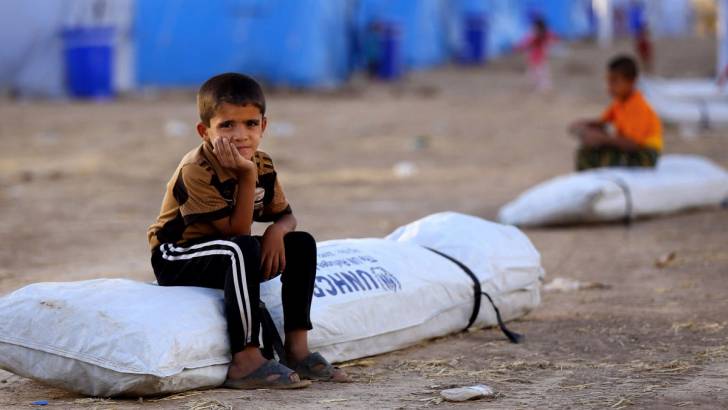Migration is not a crime and vulnerable migrant and refugee children should not be detained as if they were criminals, speakers said at a UN programme.
More than one dozen speakers addressed ‘Ending the Detention of Migrant and Refugee Children: Best Interest Determination and Alternatives to Detention’ in a fast-paced discussion hosted by the Permanent Observer Mission of the Holy See to the United Nations.
The treatment of children who cross international borders with or without family members was discussed. According to international law, they are entitled to due process in the assessment of their legal status, entry and stay in the receiving country.
In addition, the United Nations’ 1989 Convention on the Rights of the Child and its 2016 New York Declaration for Refugees and Migrants committed the international community to work to end the harmful practice of child detention.
“Regardless of the conditions, detention has a profound impact on a child’s health and development,” including anxiety, symptoms of post-traumatic stress disorder and long-term cognitive and physical effects, said Ted Chaiban, UNICEF director of programs.
The Convention on the Rights of the Child acknowledges that detention is not in the best interest of children, but the practice continues because people mistakenly think it works as a deterrent, is more effective and less expensive than alternatives, and is used only as a last resort, Chaiban said.
“It’s expensive, often fails to meet its objectives and does not deter would-be migrants. It’s detrimental to children and drives them underground, into the hands of traffickers” and away from legitimate assistance, he said.
“Vulnerable people on the move are a passionate priority of Pope Francis,” said Jesuit Fr Michael Czerny, an undersecretary for the Migrants and Refugees Section of the Vatican Dicastery for Promoting Integral Human Development. He presented a video in which Pope Francis described the obligation to welcome, protect, promote and integrate migrants, refugees and asylum-seekers.
UN agencies estimate more than 65 million people are currently stateless or forcibly displaced from their countries and 51% of them are children.



